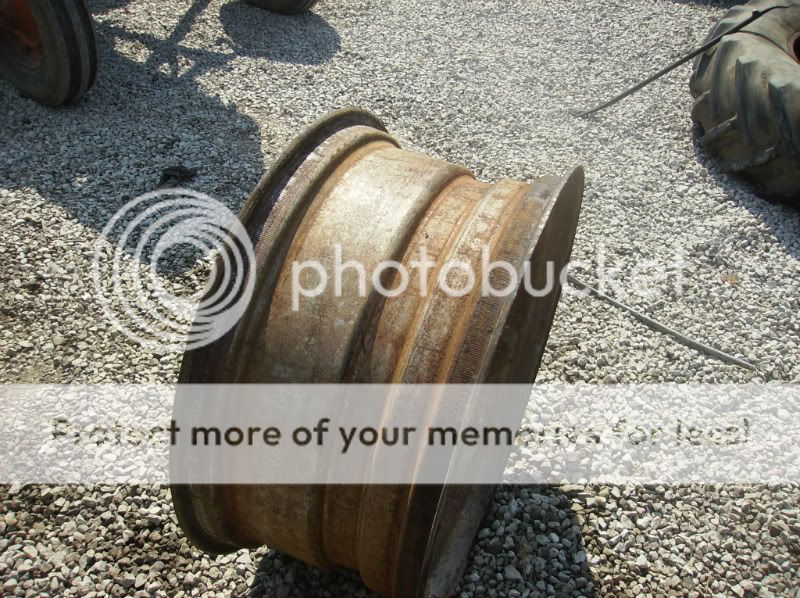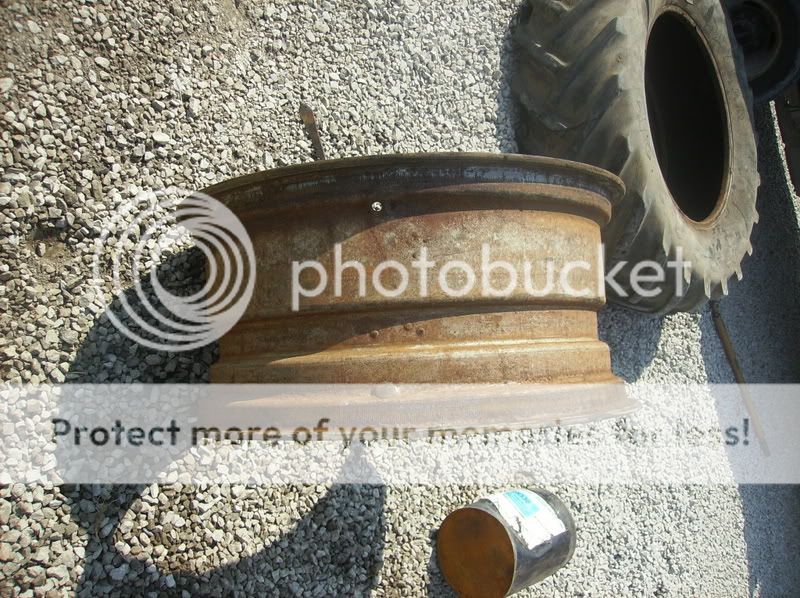We had a flat on our Massey 285, and the tires were quite worn, so we had the tires from our long dead Oliver 1755 mounted on the 285. The 1755 got a hole in the tire atleast 5 years ago, and being that it wasn't a working tractor we were concerned but didn't do anything about it because whats the point of fixing a tire on a non-working tractor?
Anyway, here are pictures of each rim. The tractor has probably had fluid in it from day 1, and that's alomst 40 years ago.



The rim on the side that didn't leak is fine, and I would fully expect it to go another 80 years no question. The other rim only has bad rust on the top above where the fluid was against the rim. I would still expect it to be good once cleaned up and painted again. For the guys that say fluid is the devil, yes it is if you don't fix a leak right away. If you notice your rim is wet around the valve stem, FIX IT!!! A service call for a leak is cheaper than a service call for a new rim because of a leak.
Donovan from Wisconsin
Anyway, here are pictures of each rim. The tractor has probably had fluid in it from day 1, and that's alomst 40 years ago.



The rim on the side that didn't leak is fine, and I would fully expect it to go another 80 years no question. The other rim only has bad rust on the top above where the fluid was against the rim. I would still expect it to be good once cleaned up and painted again. For the guys that say fluid is the devil, yes it is if you don't fix a leak right away. If you notice your rim is wet around the valve stem, FIX IT!!! A service call for a leak is cheaper than a service call for a new rim because of a leak.
Donovan from Wisconsin



